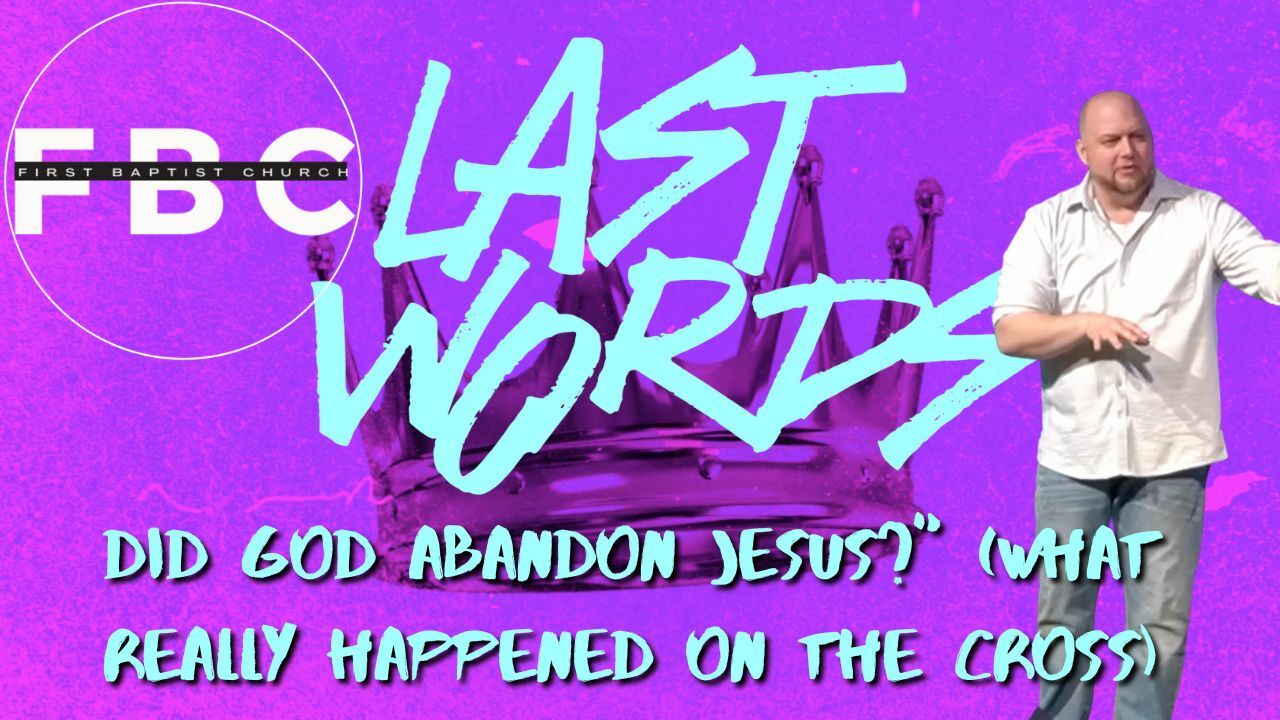Did God Abandon Jesus?” (What Really Happened on the Cross)


Understanding Jesus's Words on the Cross: "My God, Why Have You Forsaken Me?"
When Jesus cried out "My God, my God, why have you forsaken me?" from the cross, many have misinterpreted these words as a cry of abandonment. However, there's a deeper meaning that reveals hope rather than despair.
Was Jesus Really Abandoned by God?
This statement wasn't indicating that God had turned His back on Jesus or that they were separated. As part of the Trinity, Jesus and the Father cannot be divided - "I and the Father are one" (John 10:30). God was actively working through Jesus in this moment of redemption, reconciling the world to Himself.
The Hidden Meaning Behind Jesus's Words
In Jewish tradition, quoting the first line of a psalm was a way of referencing the entire psalm. Jesus was actually quoting Psalm 22, which begins with these exact words. This psalm, written by David centuries earlier, is not a psalm of abandonment but rather one of hope and ultimate victory.
Two Key Aspects of This Reference:
-
It was a song of hope - Psalm 22:24 declares that God "has not hidden his face from him but has listened to his cry for help."
-
It demonstrated prophecy fulfillment - The psalm contains detailed predictions about the crucifixion that were fulfilled in Jesus's death:
- People mocking and insulting
- Piercing of hands and feet
- Casting lots for clothing
What Does This Tell Us About Jesus?
Even in His most painful moment, Jesus was teaching and reaching out to people. He was showing that He was the promised Messiah by fulfilling ancient prophecies. The cross wasn't a tragedy but rather God's planned path to salvation.
Life Application
To follow Jesus's example, we must focus on three key areas:
-
Forgiveness - Are you holding onto unforgiveness toward anyone?
-
Love - Are you loving God with all your heart and loving your neighbors as yourself? Even those who are difficult to love?
-
Daily Sacrifice - Are you taking up your cross daily and following Jesus? This means choosing God's will over your own desires.
Questions to Consider:
- Is there someone in your life you need to start loving more intentionally?
- What daily sacrifices can you make to follow Jesus more closely?
- How can you start your day focused on God rather than yourself?
Challenge for the Week: Begin each day with intentional prayer or Bible reading before anything else. Ask God to help you love others as He loves them, especially those you find difficult to love.